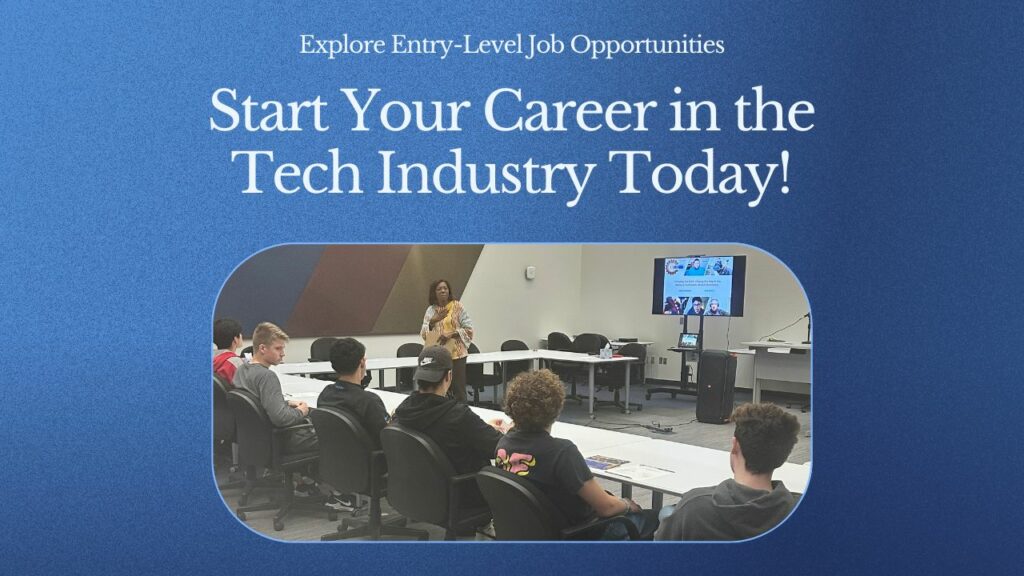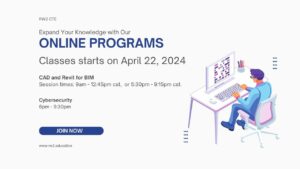
Are you someone who wants to get into the cool world of technology? In a job market that is getting more and more intense, it can be hard to find your way through the entry-level tech job process.
But if you take the right steps and are persistent, you can get your dream job. In fact, it can be a very satisfying and enjoyable experience.
That’s why we’ve put together a list of the best job-searching tips just for people looking for entry level jobs in this highly skilled field. We’ll go over everything you need to know to master the job search and stand out in this quickly growing field, from how to make your resume stand out to how to network like a pro.
Let’s get started and help you get closer to your tech dream job!
Understanding the Technical Job Market Landscape
To get ahead in the tech job market, you need to know a lot about the latest trends and needs. The tech industry moves quickly, and as technology changes, new jobs and specialties appear.
People who want to get started in technology areas often need to have both specific technical skills and the ability to learn new things all the time. Finding tech areas that are growing, like cybersecurity, cloud computing, and data analytics, is important because these are the ones that are most likely to have a lot of entry level jobs.
Also, practical knowledge is very important in the technical job market. This can be hard for people who are just out of school and have never had real work experience. But a lot of employers think that internships, project work, and relevant certifications are just as useful as regular work experience.
With this in mind, people who want to work as technicians should focus on putting together a sample of their work that shows how skilled and knowledgeable they are in the field.
Also, it’s important to know how important soft skills are in the technical job market. Communication, teamwork, and problem-solving skills are just as important in tech jobs. These and other topics are part of RW2’s robust soft skills curriculum integrated into each of their CADD, Revit/BIM, and information security programs.
Employers want to hire people who are well-rounded and can not only help technically but also work well with others and make the workplace a good place to be.
Crafting a Stand-Out Resume and Cover Letter
When you’re looking for a job in technology, your resume and cover letter are like your personal ads. They should make a great first impression. Your skills, experience, and the unique value you can bring to a potential employer should all be clear in these papers.
To get an interview, make sure your resume and cover letter stand out from the rest. This will get the attention of hiring managers. Here are some important things you can do to make sure your resume and cover letter stand out:
Tailor Your Documents for Each Application
Don’t use the “one-size-fits-all” method. For each job application, make sure your resume and cover letter are unique and highlight the skills and experiences that are most important to the position.
Highlight Technical Skills and Projects
It’s important to show off your technical skills and any relevant projects or coursework, especially for entry level jobs. Include the technologies you know how to use well and talk about your part and accomplishments in projects to show how your skills are of use.
Quantify Your Achievements
When you can, use numbers to show what you’ve done and how it has affected others. This could be any metric that shows how well your projects or jobs are going, like how much time you save.
Use Keywords from the Job Description
A lot of businesses use computers to look over resumes and cover letters. In order to get past these filters, make sure you use keywords and sentences from the job description.
Showcase Soft Skills
Don’t just think about how good you are technically. Include soft skills like problem-solving, teamwork, and communication that are important in tech jobs, and give examples of how you’ve used these skills.
Keep It Concise and Error-Free
A resume should be one page, and a cover letter should also be one page. Carefully check your application for typos and spelling mistakes, as they could hurt your chances of getting the job.
Following these tips will help you make a resume and cover letter that not only stands out but also shows how qualified you are to work in the tech industry and how useful you could be.
Effective Networking Strategies for Technical Professionals
When looking for a job, networking is very important. This is especially true in technical fields, where personal connections can lead to chances that aren’t advertised publicly.
Start by using LinkedIn, a professional networking site, to find people in your field and join groups related to the technology field you want to work in. Take part in talks, share useful content, and show that you know and are excited about new technology trends and developments.
Also, go to industry conferences, workshops, and meetups, and career fairs, even if they’re online, to connect with employers and mentors. When you’re networking, you should focus on making real connections with people instead of looking for jobs right away.
Offer your help or knowledge, and don’t be afraid to ask deep questions. This will help people remember you, which could lead to tips or referrals. Remember that networking is about helping each other out and making business connections that last.
You can grow your network by getting in touch with former students who are now working in technology areas. Many schools have platforms just for alumni networking that can help make these links. If you use these tips, you’ll be able to find more entry level jobs and stand out in the tech job market.
Preparing for Technical Interviews
To prepare for technical interviews, you need a plan that includes learning about the technical standards of the job, practicing problem-solving skills, and being able to explain your thought process clearly.
Live coding tasks, problem-solving questions, and talks about technical projects you’ve worked on are common parts of technical interviews. To do well in these interviews, you need to prepare. To help you get ready, here are some ideas:
- Review the job description
- Have some knowledge of the company
- Practice coding problems
- Brush up on fundamentals
- Study your projects
- Mock interviews
- Prepare questions
- Relax and be yourself
By using these tips to get ready, you’ll not only do better in your technical interview, but you’ll also show how dedicated and passionate you are about the job.
Embracing Continuous Learning and Skill Development
In the fast-changing field of technology, it’s not just good to keep learning and improving your skills; it’s necessary.
There are a lot of new tools, systems, and methods coming out all the time in the technology world. If you want to stay competitive and useful in your job, you should keep up with these changes.
This means actively looking for ways to learn, like taking classes, using the Internet for help, going to events, or getting industry-specific credentials. You can make sure your skills and knowledge stay updated and useful by committing to lifelong learning. This will allow you to take on new challenges and take advantage of chances as they arise.
Why should you pick RW2? When you’re done with this STEM school, you’ll be ready for work because you’ll have the skills that employers want. Our assistance with career placement has already helped numerous people in the Kansas City Region and across the country find satisfying jobs.
As one of the best places in the country to learn professional skills, get trained, and get certified, we stand out. RW2 gives you the skills you need to do well in today’s tough job market, whether you want to start a new career, switch to a different field, or improve the skills you already have. Don’t wait; take control of your future right now. Sign up now for RW2. RW2 has cutting-edge programs – Cybersecurity, Computer-Aided Drafting and Design (CADD), and Revit for Building Information Modeling (BIM) – to equip you with high-demand skills for high-demand careers in 24 weeks or less.




of course like your website but you have to check the spelling on several of your posts A number of them are rife with spelling issues and I in finding it very troublesome to inform the reality on the other hand I will certainly come back again
Thank you for your feedback. I apologize for any spelling errors you’ve encountered. We strive to maintain high standards and appreciate your patience as we work to improve. Your comments are invaluable, and we hope to make your future visits more enjoyable. Thanks for sticking with us.
Fourweekmba Very well presented. Every quote was awesome and thanks for sharing the content. Keep sharing and keep motivating others.
Tech to Trick very informative articles or reviews at this time.
It’s always a pleasure to know that the tips provided are helpful, especially when it comes to something as important as job searching in technical fields. If you have any specific questions or need further advice on any particular aspect of the job hunt, feel free to ask. We’re here to support you in any way we can!
Tech to Force I do not even understand how I ended up here, but I assumed this publish used to be great
Thank you for stopping by and leaving a comment! I’m glad to hear you found the post valuable. Job searching, especially in technical fields, can be a daunting task, and we are happy to share tips that can make the process a bit smoother. If you have any specific questions or need further advice on any of the tips mentioned, feel free to ask.
Henof For the reason that the admin of this site is working, no uncertainty very quickly it will be renowned, due to its quality contents.